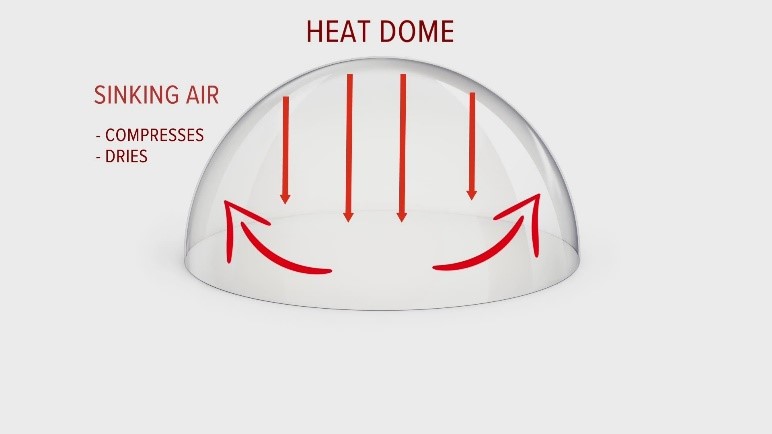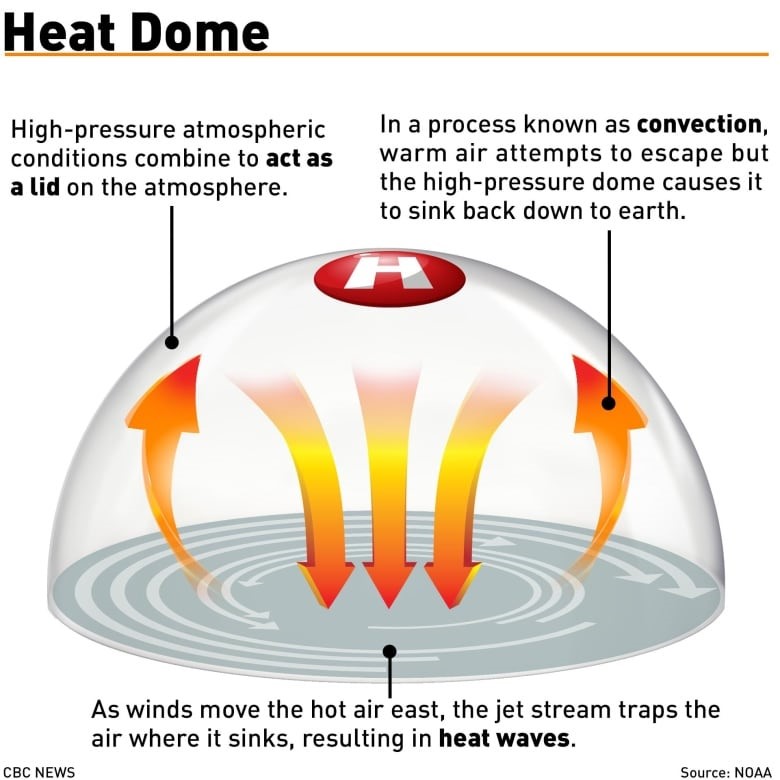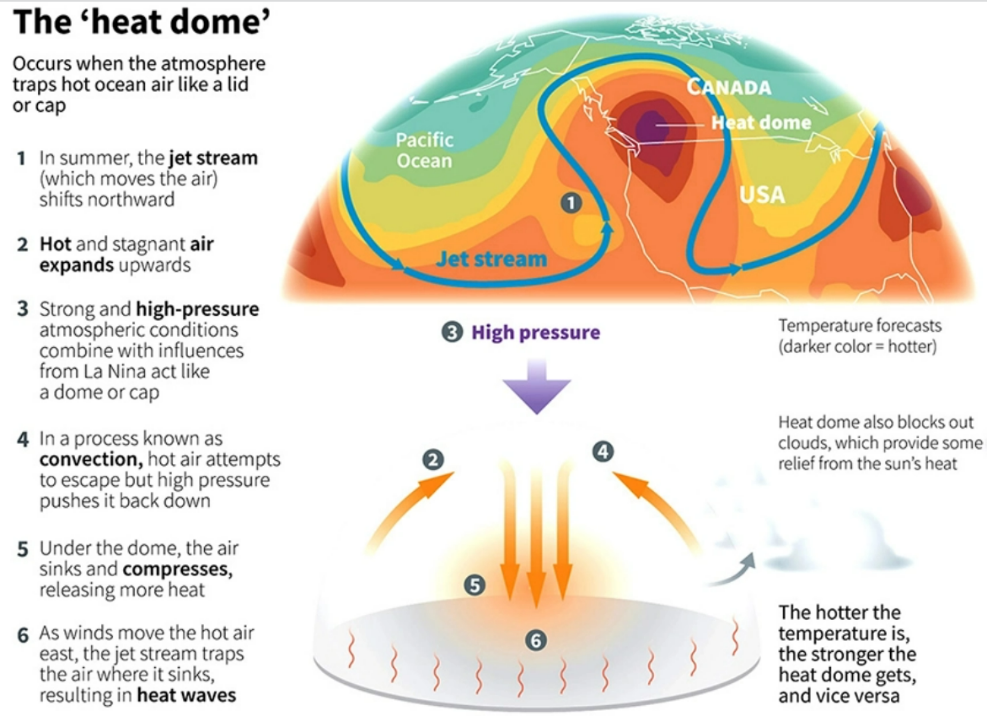Free Courses Sale ends Soon, Get It Now


Free Courses Sale ends Soon, Get It Now



Disclaimer: Copyright infringement not intended.
Context
What is a heat dome?

Relationship between Heat Domes and Jet Streams
|
Jet Streams Jet streams are relatively narrow bands of strong wind in the upper levels of the atmosphere. The winds blow from west to east in jet streams but the flow often shifts to the north and south. Jet streams follow the boundaries between hot and co ld air.
Since these hot and cold air boundaries are most pronounced in winter, jet streams are the strongest for both the northern and southern hemisphere winters. Jet streams form when warm air masses meet cold air masses in the atmosphere. Mechanism The Sun doesn’t heat the whole Earth evenly. That’s why areas near the equator are hot and areas near the poles are cold. So, when Earth’s warmer air masses meet cooler air masses, the warmer air rises up higher in the atmosphere while cooler air sinks down to replace the warm air. This movement creates an air current, or wind. A jet stream is a type of air current that forms high in the atmosphere. The fast-moving air currents in a jet stream can transport weather systems across the Earth. Jet streams are located about five to nine miles above Earth’s surface in the mid to upper troposphere — the layer of Earth’s atmosphere where we live and breathe. Airplanes also fly in the mid to upper troposphere. So, if an airplane flies in a powerful jet stream and they are traveling in the same direction, the airplane can get a boost. That’s why an airplane flying a route from west to east can generally make the trip faster than an airplane traveling the same route east to west. |

Climate Change and Heat Domes
Heat Domes and their impact on Human Beings
Closing Thoughts
Read about Heat Waves and Climate Change: https://www.iasgyan.in/rstv/heat-waves-and-climate-change
© 2024 iasgyan. All right reserved